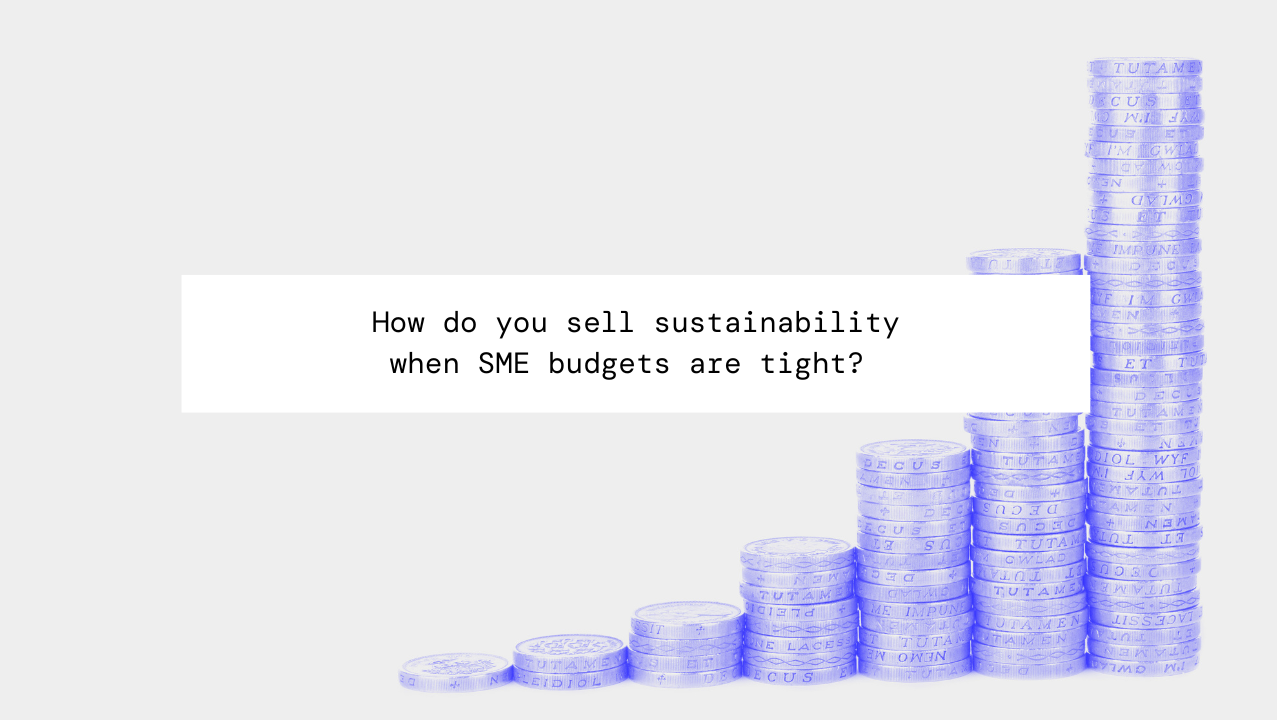This guide explains how UK SMEs can access affordable sustainability reporting through a balance of human expertise, AI efficiencies and practical tools.
It’s the Big Question when it comes to helping UK SMEs communicate their sustainability.
On one hand, our sustainability reporting services for SMEs need to be affordable — small businesses are already under financial pressure. For our own model to be viable — bringing sustainability storytelling to those who need it — we need to work efficiently and at scale. At the same time, it’s a non-negotiable that our work is high quality and rooted in genuine impact.
A couple of years ago, it would have been a case of cheap/good/fast — pick two. Which means Brace For Impact couldn’t have existed.
Today, there are a few ways we’re able to offer affordable sustainability reporting that covers all three requirements:
Human expertise
Having begun to specialise in sustainability a few years ago, we’ve spent that time bolstering our technical knowledge to understand what goes into Sustainability Reporting. For example, a two-day course on GRI Reporting took me through reporting “in accordance” — the most rigorous way to report using the Global Reporting Initiative (GRI) Standards, which requires organisations to comply with all nine requirements in the GRI 1: Foundation Standard.
This is over and above what most SMEs will be able to do. But our knowledge sets us up to produce reports “in reference” to these standards, providing a robust framework underpinning every SME sustainability report we write.
Third-party tools
These give us the flexibility to adapt our approach to suit a client’s budget. For example, while we have environmental consultants who can calculate a company’s carbon footprint, that’s not the best use of every client’s budget. Instead, we often recommend third-party tools (many free) for those calculations to be performed in-house.
This means that some of the information gathering rests with our clients, but as a result, we can apply our expertise to the work you can’t do yourselves — turning that data into compelling sustainability stories that can win you more work.
AI efficiencies
We have a whole other post in drafts about AI and sustainability, so putting that aside for a second: qualified and thoughtful use of AI makes Brace For Impact possible.
The idea behind our model is simple — AI efficiencies + human expertise. AI allows us to process large amounts of information, draw out relevant themes and narratives, and shortcut the writing process.
These efficiencies are the linchpin that let us offer sustainability reporting services SMEs can afford, without compromising quality.
Understanding SMEs
By and large, our clients want to make more sales. Anything we produce needs to stack up commercially if budget is to be allocated. While we care deeply about sustainability, we’re also pragmatic. Only when businesses recognise the commercial value of Sustainability Reports will they become commonplace.
Our reports are designed to highlight environmental progress alongside business case studies and products, justifying their place in a company’s financial planning.
Understanding our offering
Similarly, we’re clear on what we are and what we’re not. In most cases, we’re the first step. We come before a company takes the plunge and becomes a B Corp, or commits to the cost of hiring an environmental consultant to analyse their Scope 3 and supply chain emissions. When a company is ready to take those further steps, we can recommend the right people to work with.
Affordable sustainability reporting for SMEs isn’t about cutting corners. It’s about combining smart tools, AI efficiencies and human insight to make genuine impact accessible to every business.
If you’d like to discuss how we can help your company turn your sustainability story into something that wins you business, book a call.
